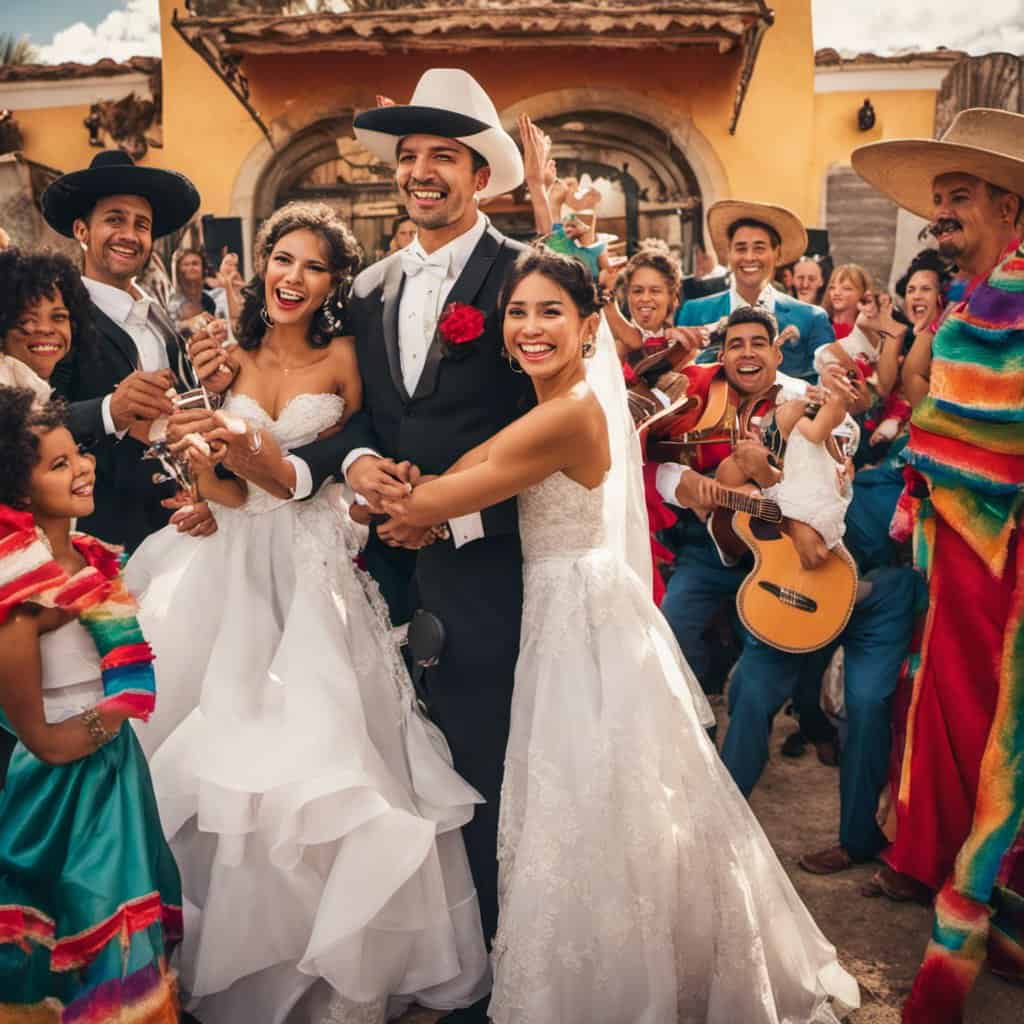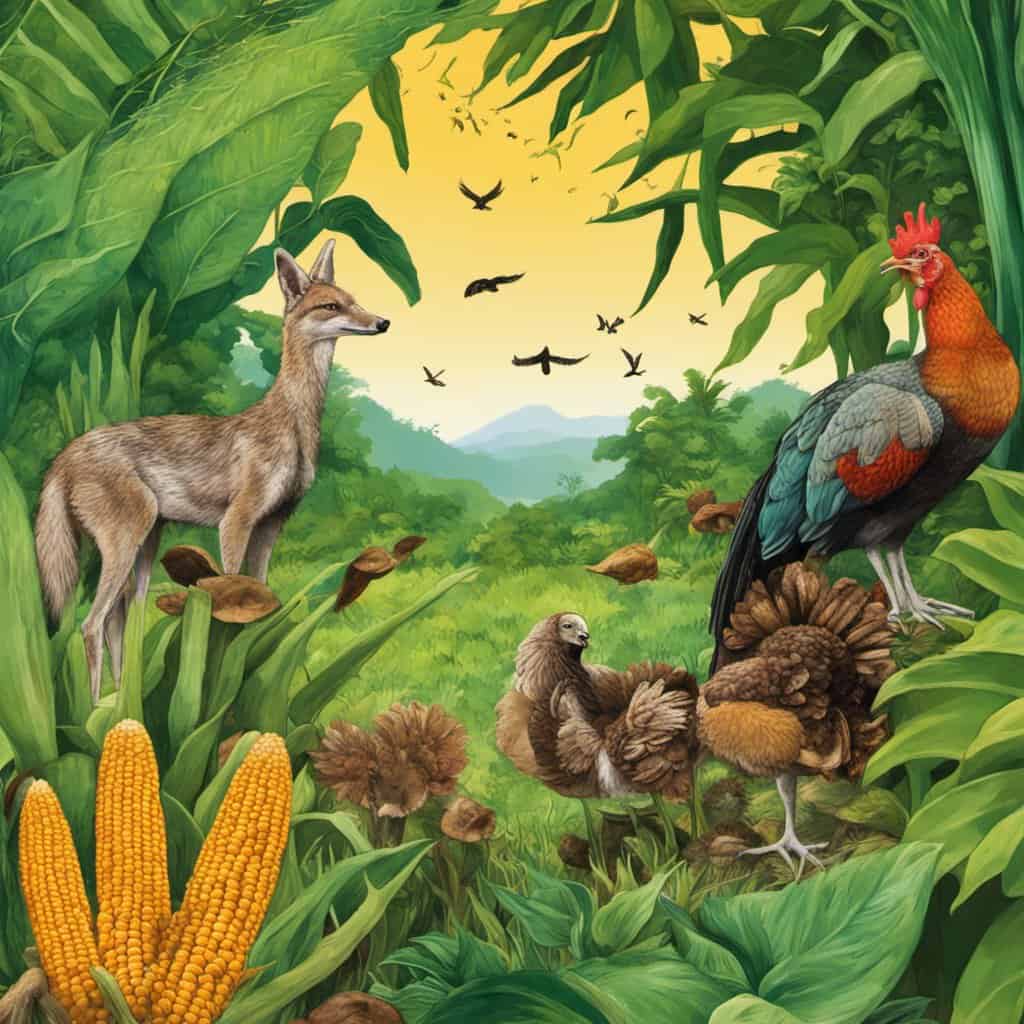‘La Boda Del Huitlacoche,’ a famous Mexican song by Carin Leon, has been making waves in the music industry. The song’s catchy tune and upbeat rhythm have captivated audiences worldwide, and many have wondered about its lyrics’ meaning. The song’s title, which translates to “The Wedding of the Corn Smut,” has piqued the curiosity of many listeners.
Some fans have speculated that the song is about a wedding in the jungle, while others believe it is a metaphor for something more profound. Other sources maintain the theme might be a commentary on Mexican culture and society, with the huitlacoche representing the corruption and decay prevalent in many aspects of Mexican life.
Whatever the true meaning behind La Boda Del Huitlacoche might be, there is no denying that the song has captured the hearts and minds of millions of people worldwide. And in the following sections, we’ll explore all possible meanings of the song.
Origins of ‘La Boda Del Huitlacoche’

‘La Boda Del Huitlacoche’ translates to ‘The Wedding of Huitlacoche,’ which is the name of a fungus that grows on the ears of corn. The song was written by Carlos Madrigal in the late 1950s and passed down through generations of Mexican families.
It tells the story of a wedding celebration that takes place in the jungle of the coyote. The lyrics describe the guests, including turkeys, rabbits, and other animals, as they gather to celebrate the wedding of two people.
Despite its origins dating back over 50 years, the song gained renewed popularity when it was covered by the Mexican singer Carin León. His version of the song became a viral hit on social media, and the song has since become a cultural phenomenon in Mexico.
‘Huitlacoche’ may be unfamiliar to some. Still, it is a prized ingredient in Mexican cuisine, a delicacy used in various dishes, including quesadillas, soups, and stews. Its unique flavor and texture make it a popular ingredient in many traditional Mexican recipes.
Cultural Significance
“La Boda Del Huitlacoche” is a testament to the rich cultural heritage of Mexico and its people. It has become a symbol of Mexican identity and has helped to preserve the country’s cultural traditions.
The song’s lyrics are full of cultural references easily recognizable to Mexicans. The mention of the “huitlacoche” fungus, for example, is a nod to the country’s culinary traditions. Likewise, the song’s title also references the fungus’s importance in Mexican cuisine.
La Boda Del Huitlacoche’s popularity helped promote traditional Mexican music. Its upbeat rhythm and catchy lyrics made it a fan favorite at parties and celebrations. It has become a staple of Mexican music and is often played at weddings, quinceañeras, and other special events.
In addition to its cultural significance, “La Boda Del Huitlacoche” has also become a symbol of Mexican pride. The song’s popularity has helped unite Mexicans in Mexico and abroad. It has become a rallying cry for those proud of their Mexican heritage and has helped promote a positive image of Mexico around the world.
Linguistic Interpretation
Word by Word Analysis
To understand the song’s meaning, analyzing the lyrics word by word is essential.
The word “boda” means “wedding” in English. “Huitlacoche” is a fungus that grows on corn, also known as corn smut. The word “del” in the title translates to “of.” Therefore, the song’s title can be interpreted as “The Wedding of the Corn Smut.”
Contextual Meaning
The lyrics of La Boda Del Huitlacoche can be interpreted in different ways, depending on the context.
Some people believe the song is about a traditional Mexican wedding celebration in a rural area. Others interpret the song as a metaphor for the corruption and decay that exist in Mexican society.
The word “huitlacoche” in the song has also sparked debate among linguists and scholars. Some argue that the word represents the resilience and adaptability of the Mexican people, while others see it as a symbol of decay and corruption.
But like any piece of art, La Boda Del Huitlacoche is open to interpretation, and different people may have different views on the song’s message.
Usage in Literature and Art
The song “La Boda Del Huitlacoche” has been referenced in literature and art. In a novel by Mexican author Laura Esquivel, the song is mentioned in passing as a popular tune.
The song has also been featured in several films, including the 2018 movie “Roma” directed by Alfonso Cuarón. The song’s popularity has led to numerous covers and remixes by various artists.
Modern Interpretations

Some believe “La Boda del Huitlacoche” is simply about a wedding celebration in the jungle, while others think it has a deeper, more symbolic meaning. Here are two of the most popular modern interpretations:
The first popular interpretation is that the song is a metaphor for the struggle between tradition and modernity. The wedding in the jungle represents tradition, while the huitlacoche, a fungus, represents modernity. The lyrics suggest that the wedding guests are torn between their desire to uphold tradition and curiosity about the new and unfamiliar.
Another interpretation is that the song is about the power of nature and the importance of respecting the environment. The jungle setting and the presence of animals such as coyotes and turkeys suggest a connection to the natural world. At the same time, the huitlacoche, a product of the earth, represents the bounty that nature can provide. The lyrics suggest that humans should appreciate and protect the natural world rather than exploit it for their purposes.
Conclusion
“La Boda del Huitlacoche” by Carin Leon sparked debate and speculation among listeners.
Despite the varying interpretations, one thing is clear: the song resonates with audiences across Mexico and beyond. Its catchy melody and playful lyrics have made it a viral hit on social media platforms like TikTok and Facebook.
“La Boda del Huitlacoche” has become a beloved anthem for many, celebrating the rich traditions and vibrant spirit of Mexico.
So, whether you are a longtime fan of the song or just discovering it for the first time, we hope this article has shed some light on its meaning and cultural significance.
Frequently Asked Questions
What is the origin and meaning of huitlacoche?
Huitlacoche, also known as corn smut, is a fungus that grows on corn. It is a traditional ingredient in Mexican cuisine and has been used for centuries. The word huitlacoche comes from the Nahuatl language, which was spoken by the Aztecs. It is believed to have originated in central Mexico.
What is the history of La boda del Huitlacoche?
La boda del Huitlacoche is a popular Mexican song that has been around for over 50 years. The song tells the story of a wedding that takes place in the jungle, where the groom is a huitlacoche and the bride is a famous bird. The song has been passed down from generation to generation and has become a cultural icon in Mexico.
What are the lyrics of El huitlacoche song?
The lyrics of La boda del Huitlacoche are in Spanish. The song tells the story of a wedding that takes place in the jungle, where the groom is a huitlacoche and the bride is a famous bird. The lyrics are playful and humorous, and the song is often sung at weddings and other celebrations in Mexico.
What is the difference between cuitlacoche and huitlacoche?
Cuitlacoche and huitlacoche are two different words for the same thing: corn smut. Cuitlacoche is the word used in central Mexico, while huitlacoche is used in other parts of Mexico. Both words refer to the fungus that grows on corn.
What is the meaning of La boda del Huitlacoche?
La boda del Huitlacoche is a playful and humorous song that tells the story of a wedding between a huitlacoche and a famous bird. The song is often sung at weddings and other celebrations in Mexico and has become a cultural icon.
What is the Spanish slang meaning of huitlacoche?
In Mexican Spanish slang, huitlacoche can also refer to something that is ugly or unappealing. However, this is not the traditional meaning of the word and is considered a slang usage.
